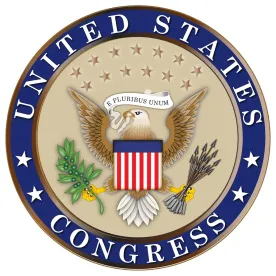Early in the morning on Saturday, March 14, 2020, the U.S. House of Representatives passed Congress’ second sweeping legislative package in response to the COVID-19 epidemic, with a bipartisan 363-40 vote. The legislation, The Emergency Families First Coronavirus Response Act (H.R. 6201), is the result of swift negotiations between Treasury Secretary Steve Mnuchin and Speaker Pelosi. The bill includes not only public health and health sector provisions but also paid leave and other policies intended to help American families in the coming weeks. This latest action comes after President Trump signed an $8.3 billion public health bill into law earlier this month to expand access to care, support local public health departments and fund vaccine research development.
Background
As Americans and businesses grapple with prioritizing health and safety through recommendations like social distancing, the U.S. economy is struggling and families are growing concerned about surviving a national “shutdown” in the coming weeks. It has become increasingly evident that this pandemic is not only a public health emergency but also an economic one that could leave millions of workers and their families in a dire state. It was in response to this realization that the House acted this weekend by passing H.R. 6201.
However, the legislation is not likely to make it to the President’s desk immediately. First, some technical language errors need to be corrected, requiring the House to repass the edited legislation either before or after the Senate takes it up. Fortunately, Majority Leader McConnell canceled the previously scheduled Senate recess for this week, ensuring legislators stay in town to work on this priority. However, reports over the weekend indicate the Senate may first take up reauthorization of the Foreign Intelligence Surveillance Act, which expired Sunday night before turning to the new COVID-19 bill. Even then, it’s not a given that the Senate GOP will follow the White House’s recommendation to support the bill. Provisions such as mandated paid leave will be a tough legislative pill for many conservative lawmakers to swallow, especially as individual business sectors express their concerns in the coming days.
What’s in the Bill?
In a nutshell, the legislation guarantees free coronavirus testing, establishes paid leave for employees of certain businesses, funds Unemployment Insurance, expands food programs and increases federal funding for Medicaid.
Paid Leave
The legislation mandates two weeks of paid sick leave and 12 weeks of job-protected leave under the Family and Medical Leave Act (FMLA) for most employees of businesses with fewer than 500 employees, including part-time employees. These benefits are in addition to any paid time off benefits that the employer already provides. To help offset the costs to businesses, the legislation includes refundable tax credits to cover 100% of wages paid by an employer during an employee’s qualified leave, subject to certain caps. These requirements would take effect 15 days after enactment and would only be mandated through the end of calendar year 2020.
The legislation gives the Secretary of Labor the authority to partially exempt businesses with fewer than 50 employees from the requirements.
The current legislation provides employees of covered employers:
-
Up to two weeks (capped at 80 hours; pro-rated for part-timers) of paid sick leave, available for immediate use regardless of length of employment, for:
-
Time to obtain a diagnosis or care if the employee is experiencing COVID-19 symptoms, which is paid at 100% (or to assist a family member who must do so, which is paid at 2/3 the employee’s rate).
-
Self-isolating because the employee is diagnosed with COVID-19 or has been told by a public official or health care provider that he or she should self-isolate due to COVID-19 exposure or symptoms, which is paid at 100% (or assisting a family member who must self-isolate for those reasons, which is paid at 2/3 the employee’s rate).
-
Time to care for the employee’s child if the child’s school/child care provider is unavailable due to COVID-19, which is paid at 2/3 the employee’s rate.
-
-
Up to 12 weeks of FMLA leave, with time after the initial two weeks paid at 2/3 the employee’s rate, available to anyone after 30 days of employment for:
-
Self-isolating because the employee has been told by a public official or health care provider that they should self-isolate due to COVID-19 exposure or symptoms (unless the employee can self-isolate and work at the same time, like working from home).
-
Time to care for a family member who has to self-isolate for the above reasons.
-
Time to care for the employee’s child if the child’s school/child care provider is unavailable due to COVID-19.
-
"Family member" is defined more broadly than under the FMLA, to cover siblings, next of kin, grandparents and grandchildren if the person being cared for is pregnant, is a senior citizen, or is an individual with a disability or access or functional needs. "Parents" extends to stepparents, in-laws and parents of domestic partners.
Free Coronavirus Testing
The legislation mandates that private health plans cover COVID-19 tests at no cost to patients and ensures patients in federal health programs including Medicare, Medicare Advantage, CHIP, TRICARE, federal employee health insurance programs and Medicaid have no cost sharing. The package includes funding to support free COVID-19 testing through federal programs. This includes:
-
$82 million for the Defense Health Program
-
$64 million for the Indian Health Service
-
$1 billion for tests for the uninsured through the National Disaster Medical System
-
$60 million for the Veterans Health Administration
Food Security
In an effort to ensure Americans dependent on federal nutrition programs continue to access food safely during the crisis, the legislation includes supplemental funding for national food programs and suspends certain requirements, including work requirements, while allowing additional waivers to avoid a disruption in service. Funding provisions include:
-
$500 million for the Special Supplemental Nutrition Program for Women Infants and Children (WIC)
-
$400 million for the Emergency Food Assistance Program
-
$100 million for nutrition assistance for U.S. territories
-
$250 million for Senior Nutrition program at HHS
-
Allows the Department of Agriculture to provide food assistance to households with children who would normally receive free or reduced-price meals at school
-
Allows the Department of Agriculture to issue waivers for programs including the school meal program, WIC and the Supplemental Nutrition Assistance Program
Unemployment Insurance
HR 6201 includes $1 billion to shore up unemployment insurance in 2020. Half of the funding will be immediately given to all states while $500 million is reserved for emergency grants to states that experience a 10% or higher increase in unemployment. The legislation also includes language to allow interest-free loans to states to help pay unemployment benefits through the end of calendar year 2020. For the states that experience a 10% or higher unemployment increase, the federal government will increase the federal match for Extended Benefits from 50% to 100%.
PREP Act Coverage of Respirators
The legislation expands covered countermeasures under the Public Readiness and Emergency Preparedness (PREP) Act to include certain personal respiratory protective devices. This coverage provides liability immunity related to the “manufacture, testing, development, distribution, administration and use of (included) medical countermeasures.”1 Currently, the only medical countermeasures that are provided this immunity are FDA-approved items, not NIOSH-certified respirators.
Medicaid Funding
The legislation includes a 6.2% increase in the Federal Medical Assistance Percentage (FMAP) for all states and territories. The FMAP rate determines the federal cost-sharing of state Medicaid programs. In addition to an increased FMAP, the legislation allows for additional federal funds to support Medicaid programs in U.S. territories.
Telehealth
The package includes a small but necessary fix to improve the previously passed $8.3 billion package and ensure Medicare beneficiaries have access to telehealth services. The large package that President Trump signed into law on March 6 included a provision to lift certain statutory restrictions on the provision of telehealth services in the Medicare program. While the provision was limited in scope and only applicable during this current public health emergency, the expanded access to telehealth was welcomed by the medical community who see telehealth as a necessary tool to combat infectious diseases. However, the law’s requirement that providers only offer care through telehealth to patients for whom they had billed Medicare in the last three years could have unintended consequences. For example, if the patient had visited the provider or practice in the last three years but had not yet been on Medicare, that patient would be ineligible for telehealth. The new legislation clarifies that the patient did not have to be a Medicare beneficiary during the previous provider encounter.
What’s Next?
The House will likely make some technical changes to the bill they already passed, or the Senate could take up the House bill, make changes and send it back to the House for that chamber to reapprove the package. Either of these scenarios opens an opportunity for changes beyond the necessary technical ones, and some GOP senators may argue for more substantive policy changes in the base text. Even once HR 6021 is signed into law – which is expected to happen if the Senate acts since the President has tweeted his support – there will likely be additional opportunities for sector-specific emergency policies in the coming weeks. As the impact of COVID-19 continues to spread across multiple industries in the coming weeks and possibly months, Capitol Hill will continue to focus on deploying federal resources and new authorities to minimize the damage.
Footnotes:
1 https://www.phe.gov/Preparedness/legal/prepact/Pages/prepqa.aspx






 />i
/>i

